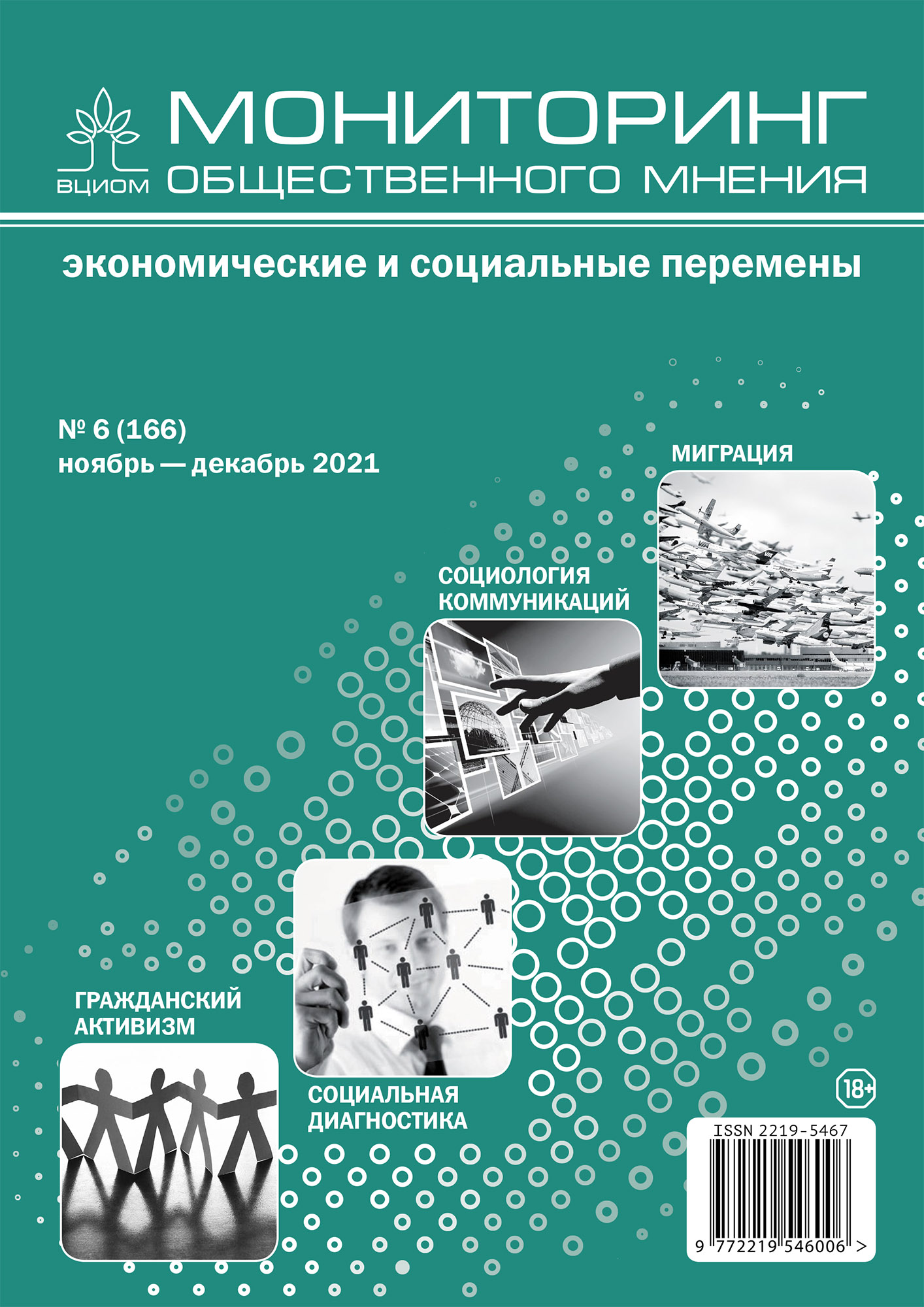Репрезентация гражданской активности российской молодежи в социальных медиа
DOI:
https://doi.org/10.14515/monitoring.2021.6.2012Ключевые слова:
гражданская активность, социальные медиа, гражданские онлайн-практики, цифровая инфраструктура гражданской активности, молодежь, социально-медийный анализ, социальные графы, когнитивное картированиеАннотация
В статье представлены результаты анализа цифровой инфраструктуры гражданской активности российской молодежи, характеристики социально-медийных сегментов оппозиционных и лоялистских цифровых сообществ и их молодежных аудиторий.
Практическая значимость предпринятого анализа состоит в осмыслении масштаба охвата российских молодых интернет-пользователей электронными социальными сетями, имеющими различную направленность (критическую или лоялистскую по отношению к действующей власти), развивающих преимущественно политическую или гражданскую повестки; изучении идентификации предпочтений молодых россиян, отраженных в их принадлежности к аудиториям указанных цифровых сообществ, а также установлении соотношения между управляемостью и неуправляемостью процесса формирования гражданской активности молодых интернет-пользователей.
Поставленные научные задачи предопределили гибридную модель реализации прикладного исследования, включающую в себя когнитивное картирование социально-медийных документов, отражающих доминирующие значения и смыслы, вкладываемые молодежью РФ в гражданские онлайн-практики; автоматизированный социально-медийный анализ с использованием онлайн сервисов для мониторинга социальных медиа (IQBuzz, Popsters), нацеленный на выявление структурных и содержательных аспектов нформационных потоков гражданской тематики, в которые вовлечена российская молодежь; социальное графирование связей между участниками онлайн сообществ гражданской направленности, сфокусированное на выявлении плотности взаимодействий внутри сообществ различных типов и стратегий управления аудиторией цифровых хабов гражданской активности.
Основными выводами исследования служат положения о распространенности оппозиционных по отношению к власти настроений; сфокусированности потоков гражданской направленности на правозащитной и экологической тематиках; превалировании среди аудитории потоков оппозиционного активизма молодых мужчин; активном циркулировании в интернете таких триггеров протестной мобилизации молодежи, как события, связанные с резонансным нарушением гражданских/политических прав.
Благодарность. Статья подготовлена по результатам исследований, выполненных за счет бюджетных средств по государственному заданию Финансового университета при правительстве РФ.
Загрузки
Опубликован
Как цитировать
Выпуск
Раздел
Лицензия
Copyright (c) 2021 Мониторинг общественного мнения: экономические и социальные перемены

Это произведение доступно по лицензии Creative Commons «Attribution-NonCommercial-ShareAlike» («Атрибуция — Некоммерческое использование — На тех же условиях») 4.0 Всемирная.






